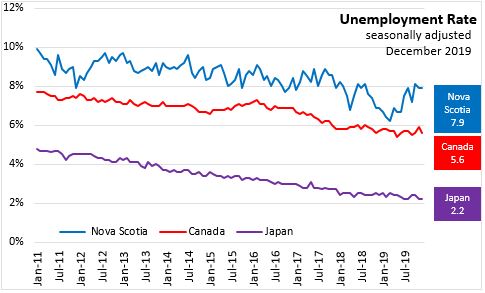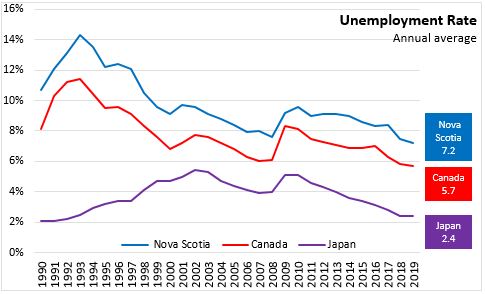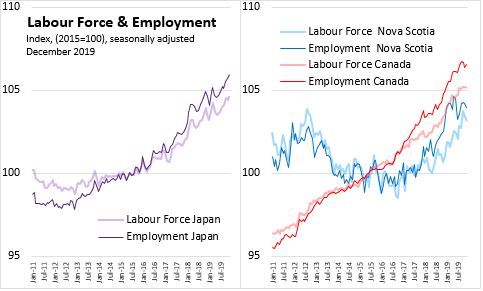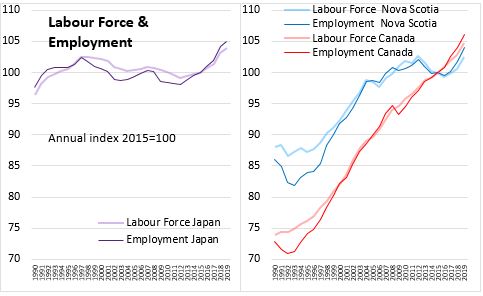The Economics and Statistics Division maintains archives of previous publications for accountability purposes, but makes no updates to keep these documents current with the latest data revisions from Statistics Canada. As a result, information in older documents may not be accurate. Please exercise caution when referring to older documents. For the latest information and historical data, please contact the individual listed to the right.
<--- Return to Archive
For additional information relating to this article, please contact:
January 31, 2020JAPAN LABOUR FORCE SURVEY, DECEMBER AND ANNUAL 2019 
In December 2019, Japan's seasonally adjusted unemployment rate held at 2.2 per cent. Over the last month, Japan's labour force and employment both increased 0.2 per cent. In the last year (compared to December 2018), Japanese labour force grew by 1.0 percent and employment grew by 1.3 per cent.
Japan's unemployment rate has remained in a range of 2.2 to 2.5 per cent since the beginning of 2018. The last time that Japan's unemployment rate was at or below 2.5 per cent for this long was in 1992-1993.
Annually, the Japanese unemployment rate was stable at 2.4 per cent in 2019.

Canada's unemployment rate has also been trending down since 2016 as employment gains outpaced labour force growth. A similar trend of declining unemployment rates emerged in Nova Scotia in 2018 (albeit with more volatility), though unemployment rates have increased in recent months with a faster rise in labour supply.

Over the long run, Japan's labour force and employment have grown much more slowly than observed in Canada or Nova Scotia.

Statistics Bureau of Japan, Statistics Canada. Table 14-10-0287-01 Labour force characteristics, monthly, seasonally adjusted and trend-cycle
<--- Return to Archive